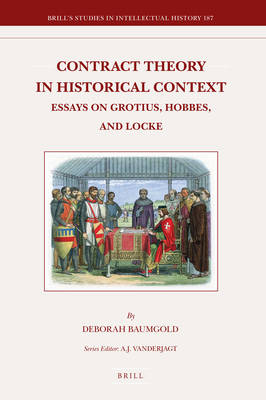
- Afhalen na 1 uur in een winkel met voorraad
- Gratis thuislevering in België vanaf € 30
- Ruim aanbod met 7 miljoen producten
- Afhalen na 1 uur in een winkel met voorraad
- Gratis thuislevering in België vanaf € 30
- Ruim aanbod met 7 miljoen producten
Zoeken
€ 212,45
+ 424 punten
Omschrijving
These essays contest the truism that the social contract is a modern political idea. Just as Rawls came to acknowledge that his political theory built in the parochial horizon of his time, Hobbes's, Grotius's, and Locke's theories presuppose their ancien regime world. Despite their universalizing language, Hobbes's and Locke's theories addressed the age-old issue of resistance to tyrants and assumed the framework of hereditary monarchy. Essays in the volume also relate the logic of their contract claims back to Bodin's and Grotius's defenses of absolute sovereignty and direct attention to the affinity between an 'absolutism of fear' and Hume's sensibility. For politically-inclined readers, these theories come to life by being read as treatises on politics in the early-modern state.
Specificaties
Betrokkenen
- Auteur(s):
- Uitgeverij:
Inhoud
- Aantal bladzijden:
- 208
- Taal:
- Engels
- Reeks:
- Reeksnummer:
- nr. 187
Eigenschappen
- Productcode (EAN):
- 9789004184251
- Verschijningsdatum:
- 27/04/2010
- Uitvoering:
- Hardcover
- Formaat:
- Genaaid
- Afmetingen:
- 165 mm x 246 mm
- Gewicht:
- 458 g

Alleen bij Standaard Boekhandel
+ 424 punten op je klantenkaart van Standaard Boekhandel
Beoordelingen
We publiceren alleen reviews die voldoen aan de voorwaarden voor reviews. Bekijk onze voorwaarden voor reviews.








